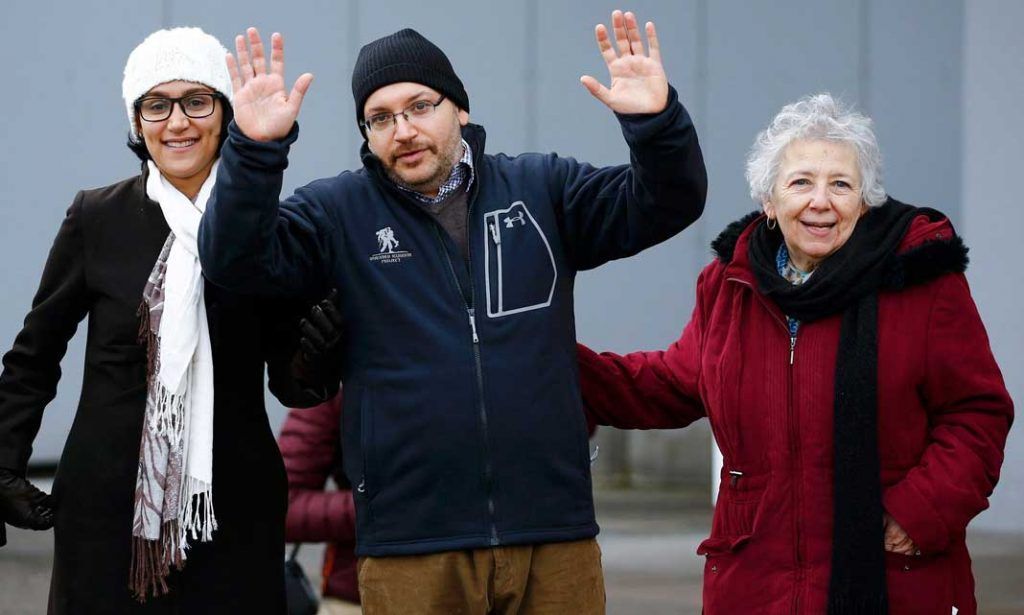November 15, 2016
For many years the Islamic republic has been trying unsuccessfully to encourage Iranians living abroad to return home and invest their money and expertise in the country. Even a concerted effort by former President Mahmoud Ahmadinejad and his second cabinet to entice potential investors with attractive incentives failed miserably.
Dual nationals considering investing business ventures in Iran are concerned about financial risks, western sanctions, lack of economic transparency, and systematic corruption, but it is the fear for their safety and security that prevents them from taking any steps. Upon returning to Iran, those holding dual citizenship are most likely to be questioned by the authorities including officials from the Islamic Revolutionary Guards Corps (IRGC). There have been reports of people being denied exit visas, detained, interrogated, and imprisoned. The high profile case of Zahra Kazemi, an Iranian-Canadian freelance photographer who was killed in 2003 while in Tehran’s Evin prison, attracted world wide attention.
Although a number of articles in the Iranian constitution deal specifically with dual citizenship, the case of Mahmoudreza Khavari, a Canadian-Iranian banker accused by the Islamic republic of embezzling $2.6 bn ignited a heated debate in the Iranian media. Khavari was able to return to Canada via the United Kingdom where he had been attending a business meeting. Apparently, Iranian authorities had not been aware of Khavari’s dual citizenship status.

The issue of dual citizenship gained another dimension after President Rouhani’s successful negotiation with western powers over the Iran Nuclear Deal. Ayatollah Khamenei and the IRGC along with its powerful propaganda machine, including the state-run media, criticized the nuclear talks, lambasted the U.S. and labeled anyone who promoted a conciliatory approach to the West as an American, British or Israeli spy.
The IRGC and some conservative elements in the regime view the arrests, closed-door trials, and

lengthy prison sentences of dual nationals as a bargaining chip in their negotiations with the West. There are various accounts of the deal between Iran and the U.S. which led to the release of four Iranian-Americans; Jason Rezaian, Saeed Abedini, Amir Mirza Hekmati and Nosratollah Khosravi-Roodsari. They were allowed to leave Iran in January 2016 as part of a prisoner exchange. On the same day that the four American hostages were released, the U.S. delivered $400 million in cash to Tehran. Many people, including some members of the U.S. Congress characterized the exchange as ransom payment. The Obama administration has argued that the cash was pay back to Iran for a weapons deal negotiated and paid for before the revolution and cancelled by the new regime.
In recent years, the Majlis (Iranian Parliament) has held a number of open and closed door

meetings to discuss the issue of dual citizenship.The IRGC warns that dual citizens are part of a plot to infiltrate and influence the nuclear talks, but the government insists that such claims aim to derail the negotiations. It has been suggested that targeting dual nationals is just another excuse for the IRGC to assert its authority, embarrass the government, and show who really runs the country. The IRGC’s intelligence branch accused a few members of the nuclear negotiating team of being spies. They were arrested, interrogated, and even incarcerated at the notorious Evin prison for a few days.
As reported extensively, Iran’s Intelligence Minister, Seyyed Mahmoud Alavi, declared “Following the resignation of a head of a department who held dual citizenship two weeks ago, I can now confirm that there are currently no government employees who hold dual nationality.” Alavi added “opposition groups use various tactics, including the issue of dual citizenship to attack the government.”
The so-called “project infiltration” aimed at identifying and dismissing government officials with dual citizenship has gained political momentum. Even regime “insiders” have not been spared. Ruhollah Rahmani, a deputy communication minister and a son-in-law of the former speaker of Majlis, Gholam Ali Haddad-Adel, was recently forced to resign due to his dual nationality status. Speaking at a gathering of “media literacy officers’ soft war” on 31 October, Hojatoleslam Esmael Saadatnejad, senior advisor to the IRGC’s Qods Force (IRGC-QF) said: “The enemies’ project infiltration aims to replace Islamic revolutionaries one by one and undermine the Islamic republic.”
With the presidential elections just around the corner, in addition to the customary wholesale disqualification of journalists, reporters and reformists, undoubtedly some regime insiders will also become the targets of “project infiltration”.
[responsivevoice_button voice=”US English Female” buttontext=”Listen to this “]

